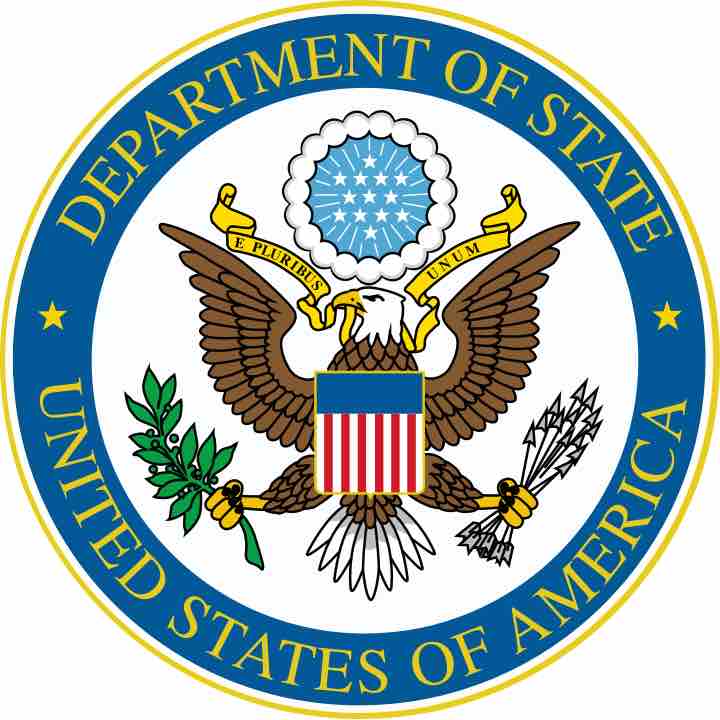There are several bureaucratic organizations that are actively involved in shaping U.S. foreign policy. Prominent among them are the State Department, the Defense Department, and the Central Intelligence Agency.
The United States Department of State (DoS), often referred to as the State Department, is the U.S. federal executive department responsible for the international relations of the United States, equivalent to the foreign ministries of other countries. The Department was created in 1789 and was the first executive department established. The Department is led by the Secretary of State, who is nominated by the President, confirmed by the Senate, and is a member of the Cabinet. As stated by the Department of State, its purpose includes:

U.S. State Department
The State Department is one bureaucratic agency that shapes U.S. foreign policy
- Protecting and assisting U.S. citizens living or traveling abroad;
- Assisting U.S. businesses in the international marketplace;
- Coordinating and providing support for international activities of other U.S. agencies (local, state, or federal government), official visits overseas and at home, and other diplomatic efforts.
- Keeping the public informed about U.S. foreign policy and relations with other countries and providing feedback from the public to administration officials.
- Providing automobile registration for non-diplomatic staff vehicles and the vehicles of diplomats of foreign countries having diplomatic immunity in the United States
The Department of Defense (also known as the Defense Department, USDOD, DOD, DoD or the Pentagon) is the executive department of the U.S. government charged with coordinating and supervising all agencies and functions of the government concerned directly with national security and the U.S. armed forces. The Department – headed by the Secretary of Defense – has three subordinate military departments: the Department of the Army, the Department of the Navy, and the Department of the Air Force. The Military Departments are each headed by their own Secretary, appointed by the President, with the advice and consent of the Senate.
The Central Intelligence Agency (CIA) is an independent civilian intelligence agency of the U.S. government. It is an executive agency that reports directly to the Director of National Intelligence with responsibility for providing national security intelligence assessments to senior U.S. policymakers. Intelligence-gathering, a core function of the agency, is performed by non-military commissioned civilian intelligence agents, many of whom are trained to avoid tactical situations. The CIA also oversees and sometimes engages in tactical and covert activities at the request of the U.S. President. Often, when such field operations are organized, the U.S. military or other warfare tacticians carry these tactical operations out on behalf of the agency while the CIA oversees them.